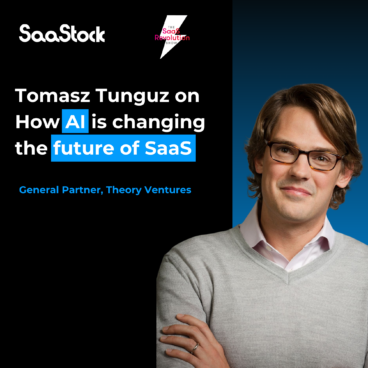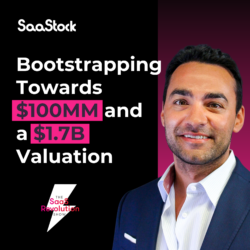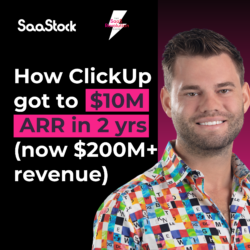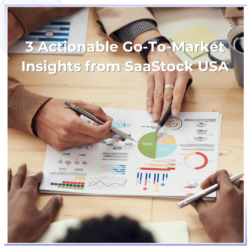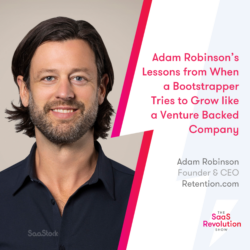Tomasz Tunguz is the arguably leading voice in AI SaaS investment. A former product manager at Google, Tomasz spent 14 years as Managing Director of Redpoint Ventures before joining Theory Ventures as General Partner in September 2022. Since then, much of his attention has focused on the AI SaaS wave and its implications for the software market.
During this episode of the SaaS Revolution Show podcast, Tomasz explained how AI is shaping the future of SaaS and how SaaS founders should use AI when building their startup.
Watch or listen to the episode below or read on for five key takeaways.
Listen to the audio now:
How will AI impact the SaaS market?
Over the last two years, SaaS companies have mainly added AI arms or added AI features on top of existing platforms. We’re starting to see humans adjust and when humans adjust the workflows will change and when the workflows change it’ll be an opportunity to unseat the big systems of record. Take Klarna, for example. They’re replacing industry-standard software like Salesforce and Workday by building their own internal systems using AI.
However, AI won’t up-end all SaaS solutions. For instance, in the SaaS world you want a broad horizontal product, but within the AI world it’s very difficult to be a broad horizontal product and drive the kind of accuracy required by the end user. That’s why most of the fast-growing AI companies tend to be vertical SaaS in fields like software engineering, accounting and legal.
How is AI in SaaS changing valuations and investment?
Many AI software companies have growth rates we’ve never seen before, but the quality of the revenue and the potential return is also really high. In the public markets, for example, companies that have AI strategies trade at a 250x premium to non AI SaaS companies.
Non AI SaaS companies therefore need to work harder to get investment. For instance, five years ago, non AI SaaS companies used to need $1million ARR to raise investment. Now, it’s significantly more.
Should founders be worried about AI in SaaS?
For me, the main reason to be optimistic is that most AI companies are not pursuing line item budgets in the same way as SaaS solutions. AI companies are pursuing labor and the labor budgets are 100-500 times larger than line item budgets. As such, AI companies don’t need to capture much market size to create a publicly traded company and will be targeting different areas (labor market spend) than SaaS point solutions.
However, AI will make a big difference to customer service. We’ve already seen Klarna cutting headcount by two-thirds in customer support and AI will probably replace two-thirds of customer service roles. Just like robots in car manufacturing replaced three jobs for every single robot, you’ll eventually have BDRs, customer support reps and customer success managers who start managing robots instead of managing humans.
How should SaaS founders use AI to give them an edge?
Firstly, reduce customer acquisition costs. Gartner found that the cost of customer acquisition over the last five years has increased by 60%. Founders should use SaaS AI to reduce their CAC relative to their peers as companies that have a superior CAC will ultimately win because they’ll compound at a faster rate. Even Einstein said compounding interest is the most powerful force in the universe.
Secondly, create unique data sets. Either create a data set that doesn’t exist yet by watching the way that people work or aggregate some data that nobody else has by virtue of being where you are in the workflow.
How much SaaS AI should founders use when building a startup today?
12 to 18 months ago, everyone needed an AI strategy because that was the growth. Today, users simply expect AI to be a key part of the product.
The hardest thing for founders is figuring out how much AI the market wants today, how quickly that will change in two years and what that means for your architecture and your positioning. As a SaaS founder, you need to decide whether to build a product that buyers want 18 months from now or build a product to meet today’s market needs. This is really difficult, especially as buyer preferences are changing incredibly quickly.
